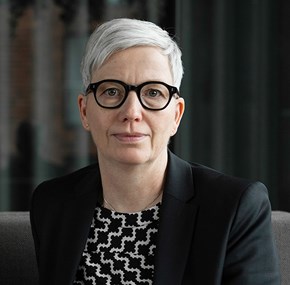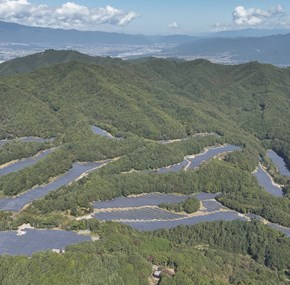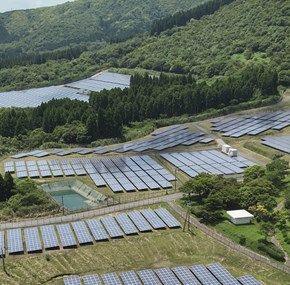A revolution in sustainable investments? Meet the EU’s new list
The days of making wild and undocumented claims about sustainable investments may soon be over. With its new detailed list, the EU aims to provide investors with a clear framework for assessing whether an investment is sustainable or not. This is obviously good news for solar PV facilities – although there are some conditions.
For many years, investors were at the mercy of their advisors when making sustainable investments.
- The absence of widely recognized sustainable investment criteria has made it extremely difficult for investors to distinguish between truly sustainable investments and “greenwashing”, says Obton’s CEO, Anders Marcus.
The biggest investors – typically pension funds and other institutional investors – have traditionally relied on the UN’s Principles for Responsible Investment (UNPRI) to evaluate potential investments. The institutional investors signing up to these principles commit to incorporating the so-called ESG (Environment, Social and Governance) issues into their investment analysis and decision-making process.
- Today, the job of assessing an investment’s ESG rating is carried out by private ESG rating agencies. Although these agencies have become increasingly professional, there are no widely recognized principles for their assessments, and agencies have been known to give different ratings for the same investments, says Anders Marcus.
However, with its taxonomy the EU is working to improve this by creating a set of universal principles to evaluate an investment’s sustainability.
A taxonomy for sustainable investments
As part of its Action Plan for Sustainable Finance, the EU has established a Technical Expert Group to develop a Taxonomy approach for environmentally sustainable economic activities. The group presented its first draft taxonomy in June 2019, which will be adopted by legislators before the end of the year.
- The EU taxonomy is a classification system that seeks to separate the wheat from the chaff when it comes to assessing sustainable investments within different sectors of the economy, says Anders Marcus. It is a tool to bridge the gap between international sustainability goals, such as the Paris climate agreement and investment practice.
- The EU is serious about pushing financial markets in a more sustainable direction. To reach their climate and energy goals, an additional €180bn per year is needed. For this reason, the EU taxonomy only includes projects that are in line with the EU’s ambition of net zero emissions by 2050. It has the potential to become the gold standard for sustainable financing, says Anders Marcus.
Solar (naturally) makes the list
The EU taxonomy has set up criteria for different sectors, and the first sectors to be included are agriculture, manufacturing, energy, water, waste, transport, ICT and buildings. More sectors are set to follow.
The set of criteria distinguishes between economic activities that may themselves be decarbonized, or activities that enable decarbonization in other sectors.
- Solar PV obviously plays a central role in the EU taxonomy. Not only as a direct means of shifting our energy production into a more sustainable direction, but more crucially as a way of “greening” other sectors, says Anders Marcus.
The manufacturing sector is an excellent example. The European manufacturing sector is the second largest contributor of CO2 emissions and has a significant potential to reduce its emissions.
- Both solar PV facilities and the manufacturing of components for solar PV panels will be deemed “sustainable investments” under the proposed EU taxonomy, says Anders Marcus. However, some conditions apply for solar PV facilities to be eligible.
It is also worth noting the industries, that are not included in the taxonomy. Most prominently, maritime shipping and aviation are not included.
- These industries are obviously important to greenhouse gas emissions, but the EU’s expert group has yet to find solid criteria to evaluate them, he says.
Increasing demands for efficiency
Because the EU taxonomy is designed to aid the EU in its ambitions to become a net-zero CO2-emitter by 2050, demands will be steadily increased.
- Only solar PV facilities operating at life cycle emissions of 100g CO2 e/kWh will be eligible from the outset. This threshold will be reviewed every 5 years to ensure that emissions decline to 0g CO2 e/kWh by 2050, says Anders Marcus.
He adds that the EU taxonomy also will take into account any potential negative environmental damage resulting from solar PV facilities such as development of a facility in designated conservation areas or areas with important ecosystems.
Getting familiar with the EU taxonomy
At the moment, the EU taxonomy is still only a political proposal expected to be adopted by the EU before the end of 2019. The next step will be to implement the EU taxonomy into the regulations of member states – and not least to familiarize the financial sector with the tool.
- This taxonomy is the first and most comprehensive of its kind in the world, and it will apply to all financial players that label their portfolio as environmentally sustainable. It will obviously take some getting used to for investors, and it will be interesting to see how they apply it to their investment practice, says Anders Marcus. But the bottom line for solar investors is clear:
- The EU taxonomy will only increase demand for solar energy because it is a key component in the green transformation of many sectors, he says.






